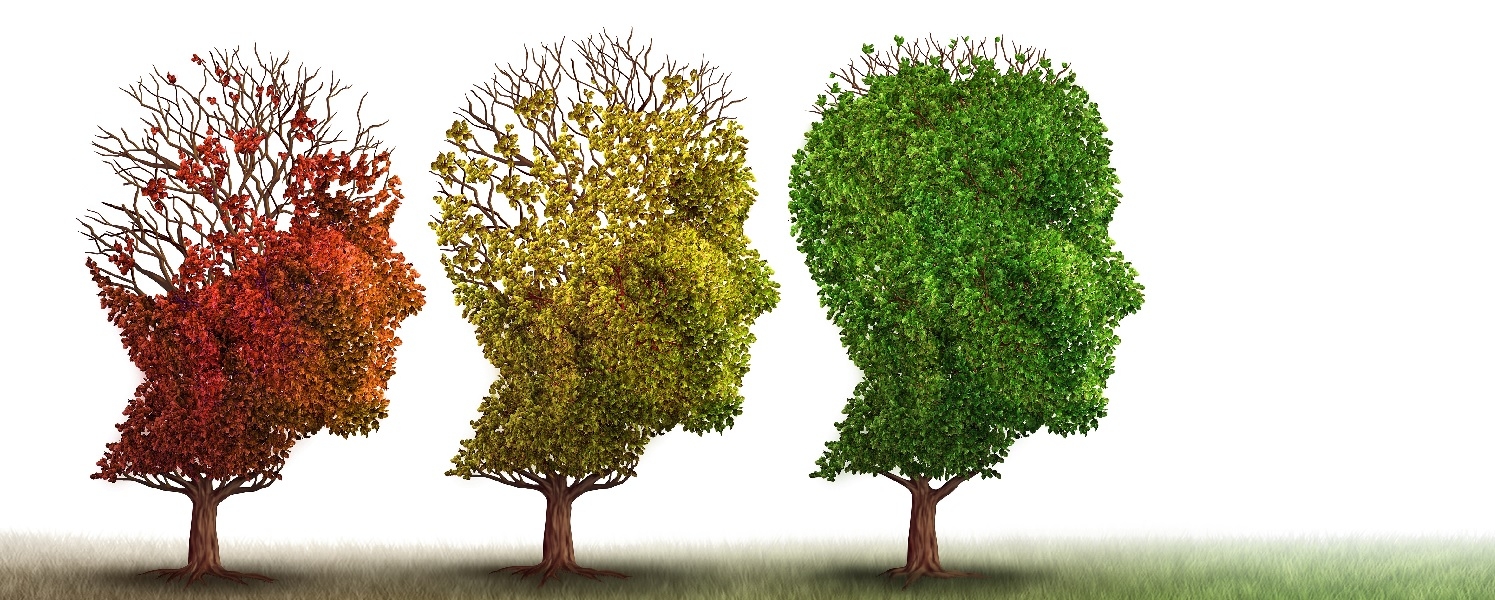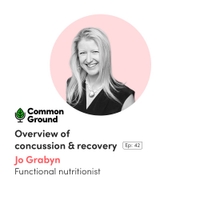
The Australian population is aging, with older Australians a growing proportion of the total population. In 2017, 15% of Australians (3.8 million) were aged 65 and over and this percentage is projected to grow steadily over the coming decades (1).
There is a growing body of evidence in both neuroscience and psychological studies showing that the full spectrum of cognitive aging encompasses both gains and losses (2,3).
Research has shown there is significant interindividual variability in age related cognitive changes. The normal aging process is associated with declines in certain cognitive abilities, such as processing speed, certain memory, language, visuospatial, and executive function abilities (3) including impaired short-term memory, episodic long-term memory, and working memory (4). Reasons for these changes include structural and functional cerebral alterations. Functional changes comprise changes in neural activation, functional connectivity, and neurotransmission, while structural changes include grey and white matter deterioration (4).
Given the broad spectrum of cognitive changes with age, any single process or unitary mechanism cannot fully explain age related deficits across all individuals (5).
Certain lifestyle, environmental and health conditions can cause memory loss or other dementia-like symptoms that are potentially reversible. Mounting evidence confirms that lifestyle modifications and nutrient approaches may be effective for maximising cognitive function and quality of life as we age (6).
Mild cognitive impairment
Mild cognitive impairment (MCI) is defined as the symptomatic predementia stage on the continuum of cognitive decline, characterised by objective impairment in cognition that is not severe enough to require help with usual activities of daily living (7). It is often a transitory state caused by reversible conditions (8,9).
The prevalence of MCI in adults aged 65 years and older is 10% to 20%. Risk increases with age and men appear to be at higher risk than women.
The rate in which MCI progresses to dementia varies between 8% and 15%. Not all MCI is due to AD, and determining subtypes is important for identifying possible treatment options (10). Estimates of reversion from MCI to normal cognition range from 2.1% to 53% (9).
Not all who experience cognitive decline, especially in advanced ages, will develop AD, and some classified as having MCI will not progress to clinically defined dementia.
Currently, there are no accepted pharmacologic treatments for MCI. Research has shown that sustained physical, social and cognitive activities can all contribute to postponing or preventing MCI (8). Recovery from MCI to normal cognition (reversion) has important implications for the prevention of dementia (11).
Dementia
Dementia is any decline in cognition that is significant enough to interfere with independent, daily functioning. Dementia is best characterized as a syndrome rather than a particular disease. The causes of dementia are myriad and include primary neurologic, neuropsychiatric, and medical conditions. It is common for multiple diseases to contribute to a patient's dementia syndrome (12).
Alzheimer's disease (AD) is the most common form of dementia in people over age 65.
Cognitive reserve
It is thought that cognitive reserve capacities might explain any non-decline of memory as aging individuals use alternative or additional pathways to ‘remember’ (13).
The cognitive reserve hypothesis stipulates that some individuals have a greater ability to withstand pathologic changes to the brain. Higher levels of education, participation in certain activities, higher socioeconomic status, and baseline intelligence protect against the clinical manifestation of brain disease. Two types of cognitive reserve are discussed. Passive reserve refers to genetically determined characteristics such as brain volume and the number of synapses and neurons present. Active reserve refers to the brain’s potential for plasticity and reorganisation in neural processing, allowing it to compensate for neuropathologic changes. The scaffolding theory of aging and cognition proposes that alternative neural circuits are recruited to achieve a cognitive goal (3).
Scaffolding is “a process that results in changes in brain function through strengthening of existing connections, formation of new connections, and disuse of connections that have become weak or faulty” (5).
Potentially reversible causes of memory loss
Many factors affect whether memory loss or other dementia-like symptoms are reversible. They are important to consider and address when assessing cognitive health.
A meta-analysis of 25 studies found an overall reversion rate in MCI of approximately 24% when addressing underlying issues (14).
Possible causes of reversible memory loss/MCI include (7,9,10,11,15,16,17,18):
- medications such as anti-cholinergic drugs or polypharmacy
- excessive alcohol consumption
- vitamin B12 deficiency
- air pollution
- uncontrolled cardiovascular risk factors
- anxiety
- recovery from illness
- depression
- hydration
- nutritional deficits
- affective disorders
- cerebrovascular events
- physical frailty
- sleep disorders
- social isolation
Lifestyle modifications
Evidence supports the link between several modifiable risk factors and a reduced risk for cognitive decline and dementia (19).
Strong evidence indicates that regular physical activity and management of cardiovascular risk factors (diabetes, obesity, smoking, and hypertension) reduce the risk of cognitive decline and may reduce the risk of dementia. A healthy diet and lifelong learning/cognitive training may also reduce the risk of cognitive decline (19).
A recent prospective study shows that driving is associated with maintenance of cognitive function and driving cessation with cognitive decline. Additionally, increasing the amount of time spent driving may promote the use of maps, which is likely beneficial for improving cognitive function. Specific cognitive activities, such as reading books or newspapers, were particularly associated with reversion from MCI to normal cognition (11).
Low levels of social activities are considered to predict future functional decline among community-dwelling older people. Social activities that include human interactions, such as attending meetings and hobbies or sports are related to MCI reversion (11).
The positive association between educational attainment and level of cognitive function is well-established. Important theoretical frameworks speculate that higher educational attainment affects cognitive decline, but the evidence for this prediction has been mixed (20). A recent meta-analysis and systematic review of longitudinal cohort studies found that the size of associations between education and change in cognitive performance in the general population are generally of negligible importance relative to the benefit associated with education-related impact on level of cognitive performance. Theories of cognitive aging must be updated to incorporate these findings (20).
A recent systematic review and meta-analysis evaluated the efficacy of vitamins without minerals or other cofactors on cognitive function of non-demented people and compared these results by geographical location and the presence of MCI (21). B vitamin supplementation for 3 months or longer may be beneficial for cognitive function of middle-aged or older people even when they do not have an apparent B vitamin-deficiency. Long-term intake of antioxidant vitamins could also be beneficial to cognitive function, while no observable effect was identified for vitamin D (21).
A review of randomised clinical trials of ginkgo biloba extract (120 - 240 mg daily) for up to 12 weeks found that it may improve some measures of cognitive function such as working and long term memory, attention based tasks, speed of information processing, executive function, immediate and delayed recall, and recognition in healthy adults. Long term supplementation (> 24 weeks) of 240 mg/day may also be able to improve cognitive function in patients suffering from mild dementia (22).
High adherence to a Mediterranean-type diet (MeDi) was also associated with decreased cognitive decline. The findings from recent systematic reviews and meta-analyses suggest that adherence to the MeDi and fulfilling the whole-diet approach may affect not only the risk of AD, but also predementia syndromes and their progression to overt dementia (23).
Numerous studies have demonstrated that physical exercise (PE) prevents cognitive decline linked to aging, reduces the risk of developing dementia, reduces deterioration in executive functions and improves quality of life (24). Findings from a recent meta-analysis found that PE interventions improve cognitive function in adults aged >50 years, regardless of baseline cognitive status (25). Positive benefits occurred with exercise that included tai chi, or resistance and aerobic training, prescribed either in isolation or combined. Exercise between 45 and 60 minutes, of moderate or vigorous intensity and frequency are beneficial to cognitive function (25).
The neural and vascular alterations associated with PE improve cognitive function through promotion of neurogenesis, angiogenesis, synaptic plasticity, decreased proinflammatory processes and reduced cellular damage due to oxidative stress. While lifelong participation in PE may be preferable, the adoption of exercise at any age to delay or reverse cognitive decline is worthwhile. Future RCTs are needed to refine the prescribing of PE to promote the greatest benefits to cognitive function (25).
Methodological issues in research
Methodological challenges have made it difficult for researchers to track and differentiate changes in cognitive skills over the lifespan. Studies of normal aging can be complicated when subjects are misdiagnosed as cognitively normal during study enrolment or when subjects develop cognitive impairment during the course of the study. This is an issue, given that dementia onset tends to be insidious and early symptoms can be easily missed. Two of the main methodological hurdles include obtaining sufficiently large data sets and a lack of statistically sound quantitative methods for comparing ages of peak performance (3,7).
Conclusion
Cognitive change as a normal process of aging has been well documented in the scientific literature. It is well established that the impact of aging on cognitive function is complex, being influenced by both biological and environmental factors (8).
More research is warranted on risk reduction, prevention, and brain health with both more longitudinal, population-based cohort studies and randomised controlled trials on the effectiveness of specific interventions that address modifiable risk factors (19).






